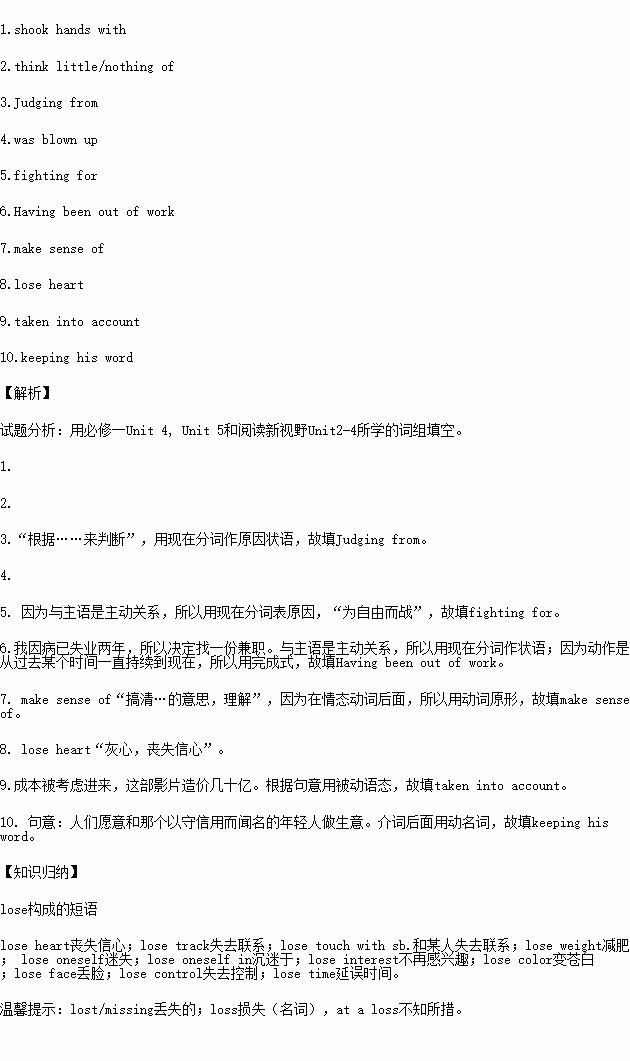题目内容
用必修一Unit 4, Unit 5和阅读新视野Unit2-4所学的词组填空。
1.They _____________ (握手) each other and became friends.
2.Small problems will turn into big ones if we _____________ (不重视) them.
3._____________ (根据……判断) his appearance, he is about 40 years old.
4.The bridge _____________ (炸毁) by the enemy.
5.A lot of people died, _____________ (争取) freedom.
6.___________ (失业) for two years because of my sickness, I decided to look for a part-time job.
7.Can you help me with this question? I cannot _____________ (理解) it.
8.Don’t _____________ (灰心) if you tried and failed because change is hard and slow. You just need to put in more efforts.
9.If the cost of the spaceships is _____________ (加以考虑), the movie cost billions of dollars to make.
10.People would like to do business with that young man who is known for
_____________ (守信用).


 ),并在其下面写出该加的词。
),并在其下面写出该加的词。